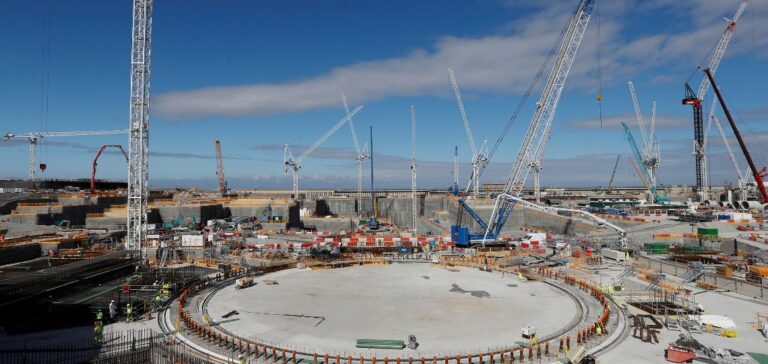NTPC, India’s leading electricity producer, officially announces the creation of a subsidiary dedicated to nuclear power.
This decision is part of the company’s diversification strategy, and is aimed at strengthening its position in the fast-changing energy market.
The new subsidiary, named NTPC Nuclear Power Company, will be fully controlled by NTPC and will focus on the development of nuclear projects, including small modular reactors (SMRs).
The move comes as NTPC prepares to launch its first nuclear project in partnership with the Nuclear Power Corporation of India Ltd (NPCIL).
This project, located at Mahi Banswara in the state of Rajasthan, marks the beginning of NTPC’s involvement in the nuclear sector.
The company also plans to develop similar projects in other regions, including Gujarat, Tamil Nadu, Chhattisgarh, Odisha and Karnataka, subject to approval by the Atomic Energy Regulatory Board (AERB).
SMR: a flexible solution for diversification
Alongside its traditional nuclear projects, NTPC is focusing on small modular reactors (SMRs) as an innovative and flexible solution to India’s growing energy needs.
SMRs, which offer greater modularity and a reduced carbon footprint, are seen as a key element in the country’s energy transition. NTPC plans to work with the private sector to accelerate the development of this technology, building on the legislative framework amended in 2016 that allows public joint ventures to participate in the nuclear sector.
The plans for these SMRs are part of a long-term vision in which NTPC envisages playing a central role in India’s energy diversification.
The company intends to capitalize on its experience in the thermal sector to replicate this success in the nuclear field.
By targeting gigawatts of installed capacity in the coming decades, NTPC is positioning SMRs as a strategic response to today’s energy challenges.
Legislative context and strategic challenges
The Indian legislative framework, which limits the ownership and operation of nuclear power plants to two public entities, NPCIL and Bharatiya Nabhikiya Vidyut Nigam Limited (BHAVINI), was relaxed in 2016 to allow joint ventures with the public sector.
This change paved the way for NTPC to join forces with NPCIL, marking a decisive step in the diversification of its activities.
NTPC sees nuclear power as an opportunity not only to diversify its energy portfolio, but also to make a significant contribution to India’s energy security.
The company plans to replicate its successful development model in the thermal sector, leveraging strategic partnerships and advanced technologies to optimize its nuclear investments.
Future prospects for NTPC
NTPC’s growing involvement in the nuclear sector is a strong signal to the Indian energy industry.
With the creation of this new subsidiary and its focus on SMRs, NTPC is demonstrating its determination to establish itself as a key player in the energy sector.
This development could also influence other public and private companies to invest in innovative nuclear technologies.
The next few months will be crucial for NTPC, as it seeks to obtain the necessary approvals and finalize its plans for new nuclear sites.
The company seems ready to meet these challenges, with a clear vision of its role in India’s energy future.






















